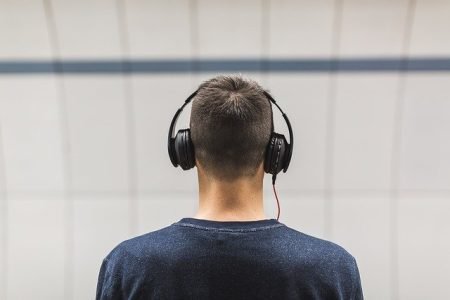Noise cancelling headphones have become increasingly popular in recent years, especially among those who are looking for ways to block out external sounds and improve their listening experience. However, as with any technology, questions have arisen about the safety of using these devices. In this article, we will explore whether noise cancelling headphones are safe to use and what potential risks may exist.
How Do Noise Canceling Headphones Work?
Let’s understand how noise cancelling headphones work. These headphones use technology that produces an inverse sound wave to cancel out external sounds. This means that the headphones emit a sound that is the exact opposite of the sound waves in the environment around them, effectively canceling out the noise. The result is a quiet environment for the listener, which can help reduce distractions and improve concentration.
Are Noise Cancelling Headphones Safe?
Here are Few Concerns about Using Cancelling Headphones:
One concern that has been raised about noise cancelling headphones is the potential for hearing damage. Some people worry that the constant use of noise cancelling headphones can lead to hearing loss or other auditory issues. However, most experts agree that noise cancelling headphones are safe to use, as long as they are used responsibly.
Some people may experience discomfort or even pain when using noise cancelling headphones for extended periods of time. This is because the headphones create a vacuum-like effect in the ear, which can cause pressure to build up.
Another concern that has been raised about noise cancelling headphones is the potential for them to mask important sounds. Important sounds such as emergency sirens or announcements. While it’s true that noise cancelling headphones can make it more difficult to hear external sounds, most models today have a feature that allows the user to toggle between noise cancelling and ambient sound modes. This feature allows you to turn off the noise cancelling function when you need to hear external sounds.
How to Use Noise Cancelling Headphones Safely?
The key to using noise cancelling headphones safely is to use them at a reasonable volume. While the headphones themselves may block out external noise, it’s still important to be mindful of the volume of the music or other audio content being played through them. Listening to music at high volumes for extended periods of time can damage your hearing, whether you’re using noise cancelling headphones or not.
If you experience discomfort while using noise cancelling headphones, it’s important to take a break and give your ears a rest.

Common FAQ
Can Noise Cancelling Headphones Cause Tinnitus?
It’s important to note that headphones, including active noise cancelling (ANC) headphones, do not cause tinnitus on their own. Tinnitus can result from listening to music or other audio content at excessively high volume levels, regardless of whether or not noise cancelling technology is being used.
Can Noise Cancelling Headphones Cause Headaches?
If noise-canceling headphones are worn too tightly around the ears or head, they can compress a nerve and cause headaches. Furthermore, using headphones with active noise canceling may also lead to headaches due to the sound waves they produce, and listening to audio content at a high volume can also contribute to this discomfort.
Can Noise Cancelling Headphones Cause Ear Infection?
Wireless headphones and earbuds that sit inside the ear canal can be a favorable environment for sweat, bacteria, and dirt to accumulate, making them more susceptible to causing infections.
Conclusion
In summary, noise cancelling headphones are generally safe to use, as long as they are used responsibly. This means using them at a reasonable volume and taking breaks when necessary. It’s also important to be mindful of external sounds and to use the ambient sound mode when necessary. By following these guidelines, you can enjoy the benefits of noise cancelling headphones without putting your hearing at risk.




